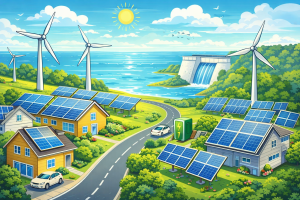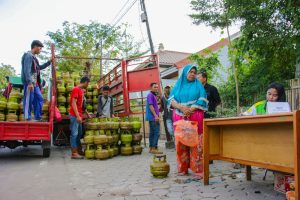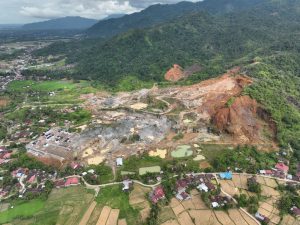Jakarta – The latest Asia Pacific Energy Transition Readiness Index 2025 report compiled by ABB’s Energy Industries division ranks Indonesia as one of the countries with the fastest energy transition rates in the Asia Pacific region. The research findings indicate that a surge in investment and the adoption of digital technology are the primary factors driving the shift towards clean energy.
The survey involved more than 4,000 business leaders from 10 industries in 12 geographic markets, including Indonesia. As a result, 40% of respondents stated that their companies had used more than half of their energy needs from renewable sources—a figure that far exceeds the regional average of 25%.
Abhinav Harikumar, Vice President of Energy Industries ABB for Southeast Asia, said this positive trend will continue.
“A total of 87% of industry players in Indonesia believe that the use of renewable energy will increase by more than 20% in the next five years. This figure is higher than the regional average of only 77%,” he told the press in Jakarta on Wednesday, September 24.
He added that regulatory reforms—including the introduction of the New and Renewable Energy Bill—provide a strong legal basis for the expansion of green energy.
Capital and technology are the pillars
In terms of financing, ABB’s research reveals that 86% of companies in Indonesia now allocate more than 10% of their capital expenditure (capex) to energy transition projects. This figure exceeds the Asia Pacific average of 73%.
Meanwhile, 70% of Indonesian respondents consider technology to be the biggest driver of energy transition. In fact, 47% of industry leaders view artificial intelligence (AI) and automation as transformative factors, which is higher than the regional average of only 32%. Digitalisation is also a top investment priority for 47% of companies in Indonesia.
“Digital technology and automation are now key elements. In addition to enabling the widespread use of renewable energy, both are also important for the modernisation of networks and infrastructure,” explained Abhinav.
The energy transition is also inseparable from the need for green jobs. Around 30% of Indonesian respondents emphasised the need to develop human resources with specific skills to support sustainability strategies.
These efforts are primarily carried out through external partnerships, with 54% of companies involving industry groups, 43% partnering with international development organisations, 33% collaborating with government agencies, and 30% working with universities and research institutions.
Public–private partnerships
The ABB study also highlights the importance of cross-sector synergy. One in four respondents believes that public-private partnerships are still not being utilised to their full potential. Areas with the greatest potential for acceleration include increased private investment (61%), interregional collaboration on network infrastructure (56%), and more substantial incentives and subsidies (55%).
Abhinav said that Indonesia has a wide-open opportunity to lead the energy transition. “To unlock its full potential, Indonesia needs to maintain the momentum of renewable energy investment, strengthen system digitalisation, develop green talent, and strengthen public-private collaboration. If all of this is achieved, Indonesia’s energy transition will be on track to accelerate in the next few years,” he said.
Research conducted by ABB between May and June 2025 indicates that, with a combination of clear regulations, capital support, and technological innovation, Indonesia has a significant opportunity to become a successful example of accelerated energy transition in the Asia Pacific region. (Hartatik)
Banner photo: Image generated by OpenAI’s DALL·E via ChatGPT (2024)















